Sustainability Highlights Report 2022-23
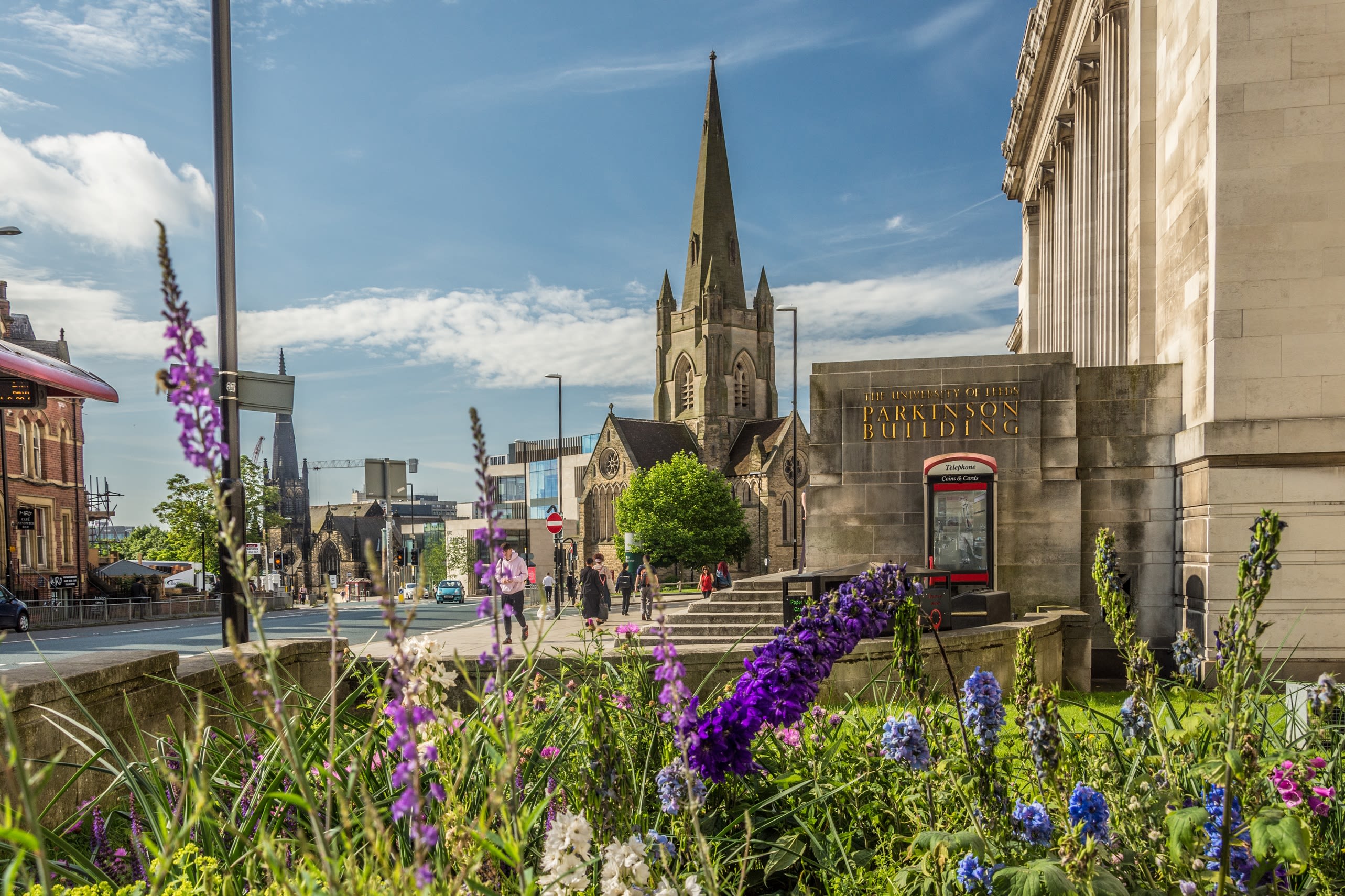
Introduction
Sustainability is embedded in the University of Leeds ten year strategy 'Universal Values, Global Change', which is rooted in our desire to make a difference in the world.
The strategy sets out our commitment to help shape a better future for humanity, working collaboratively to tackle inequalities, benefit society and drive change through delivery of the 17 United Nations Sustainable Development Goals.
This Sustainability Highlights Report provides an overview of some of the key activities and achievements delivered in the 2022-23 academic year both through our own actions as the Sustainability Service and by the many people across our community who strive to deliver a more sustainable University. We extend our sincere thanks to them for their efforts in making sustainability second nature at the University of Leeds.
A further review of our environmental and social responsibilities can be found in the University’s integrated report and accounts (PDF, 5MB). You can also explore our 2022-23 news and read our blog posts to find out more about our progress through the year.
Materiality
The themes addressed in our sustainability reporting reflect the economic, environmental, social and cultural impacts of the University of Leeds and the issues and challenges where we know we can have the largest direct and indirect impact.
Not all sustainability issues and opportunities have the same potential to create lasting and measurable change. That’s why our chosen material topics are those that have, or can create, a real difference, bringing about the most impact across the University and beyond, to local, national, and international communities.
Our work is also guided by the UN Sustainable Development Goals (SDGs), and we review our material impact areas regularly, to ensure we stay relevant and able to make a significant difference.
The United Nations Sustainable Development Goals
The UN Sustainable Development Goals (SDGs) are a framework to achieve a sustainable future for all, covering everything from reducing inequalities, responsible consumption and production, and enabling safe, sustainable cities and communities.
We are committed signatories to the SDG Accord. This is a global commitment for the education sector to embrace the critical role that education has in delivering the SDGs and sharing best practice and learnings, both nationally and internationally.
We are also signatories of the United Nations Global Compact, which encourages organisations to adopt sustainable and socially responsible policies, aligning with Ten Principles on human rights, labour, environment, and anti-corruption, and with an emphasis on collaboration and innovation. We provide a biennial submission of a Communication on Engagement (COE).
Welcome
Thom Cooper, Head of Sustainability, University of Leeds
Reflecting on the achievements of the academic year 2022-23 is a fantastic opportunity to highlight the enormous contribution of the University’s community. The impact of this continued and unwavering commitment to a collaborative and integrated approach to sustainability at Leeds can be seen from how we manage the impact of our estate to how our research and education strategies are helping shape a better future for humanity.
My particular highlights from the year include our progress on biodiversity and nature restoration, the planting of Gair Wood, and of course seeing the delivery against the commitments of our Climate Plan getting into full swing. These, alongside countless other projects, are what help us to continue to rise up the rankings such as People & Planet League, where the University of Leeds has achieved a 2:1 classification based on evidence from the 2022-23 academic year.
Looking forward I am hugely excited about our next steps as we start the work to develop our updated sustainability strategy. This will provide the framework to empower our University community to continue to be bold and innovative in our approach to sustainability in the next decade.
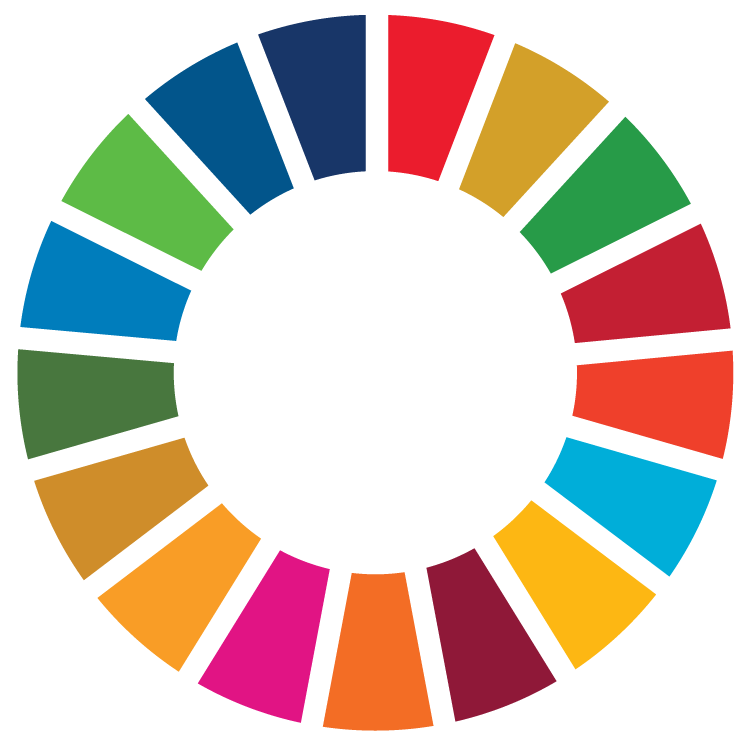
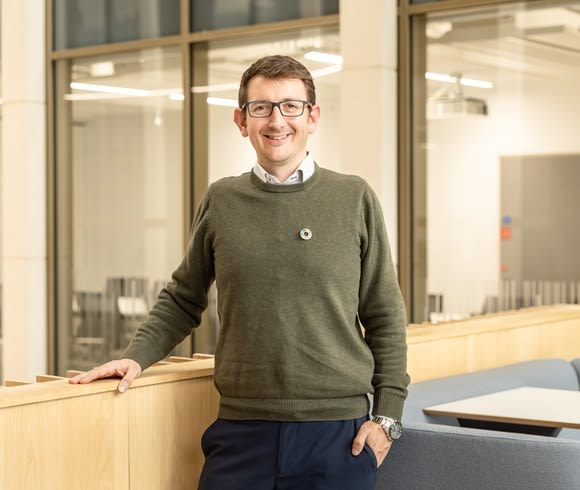
Engagement
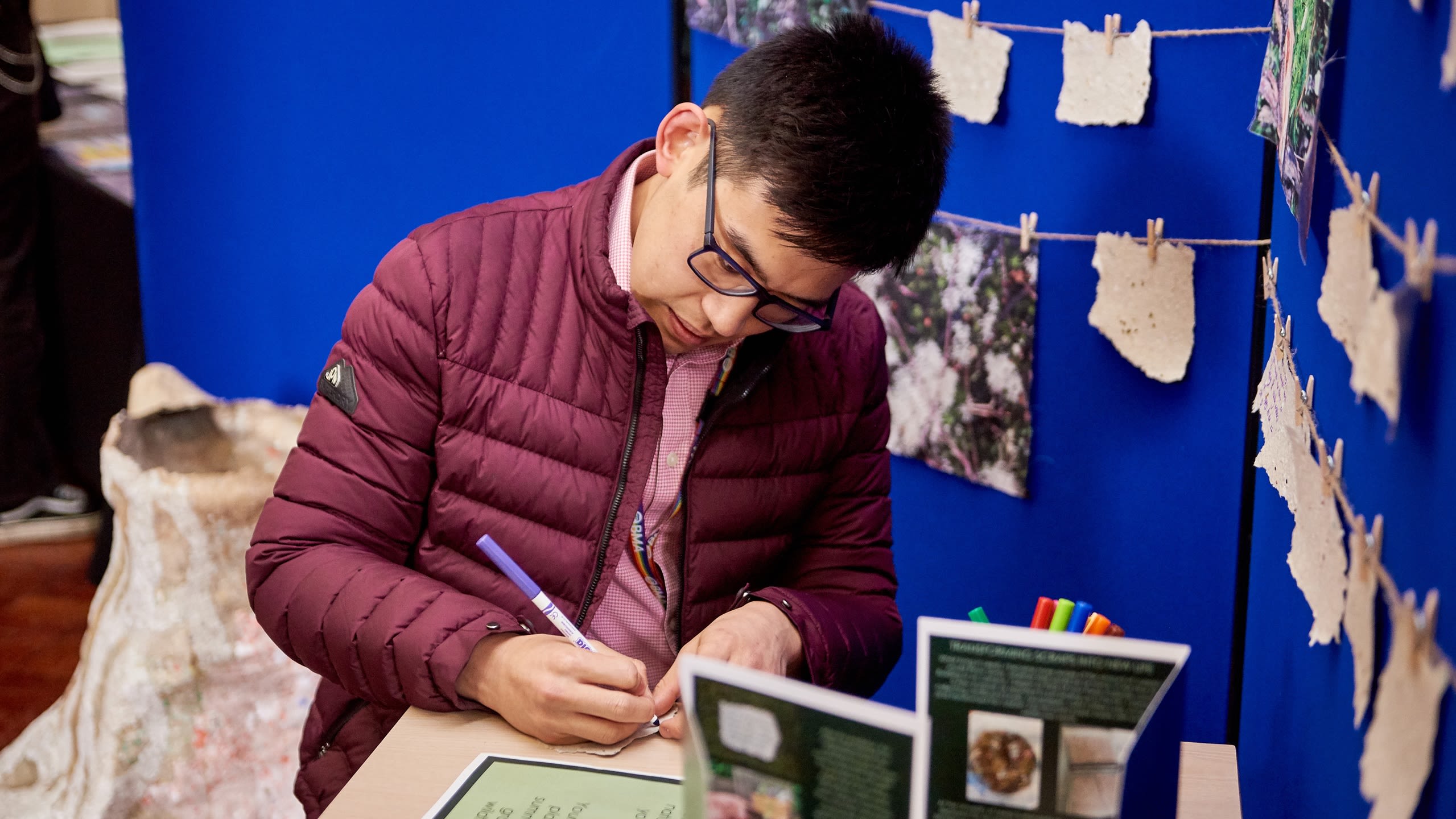
The Sustainability Service plays a leading role in communicating our work across the University community and beyond.
Our approach to engagement continues to grow our sustainability community and we provide regular opportunities to interact meaningfully with our work. We do this by increasing awareness of sustainability throughout the university and facilitating routes for staff and students to engage with sustainability, both as individuals and with their teaching, studying and research.
We find ways to connect our community members and help to enable collaboration within and outside the University, as well as helping to embed sustainability throughout our core ways of working.
We continue to work in partnership and collaboration with partners across the city, increasingly focused through the Net Zero City climate principle, for example through our leadership in chairing the Leeds Anchors Network Climate Subgroup.
This year we coordinated a programme of sustainability events including our Sustainability Celebration, Student Sustainability Research Conference and regular collaborative events.
We also delivered a broad reaching sustainability engagement programme through University and LUU events including Welcome Induction and Transition, Fresh Start Festival and LUU’s Climate Week, as well as through our Blueprint, Staff Sustainability Architect, Sustainable Labs and Sustainable Curriculum programmes.
Figures and headlines
- 3 new Blueprint plans approved
- Sustainable Labs Resource Hub launched
- 4 Bronze, 6 Silver and 3 Gold LEAF Certificates awarded
- 2 Sustainability Interns
- 26 Student Sustainability Architects
- Leeds University Network for Sustainability in Higher Education (LUNSHE) launched
- 341 sustainability-related modules
- 1 new MSc Climate Futures course approved
- Sustainability community of 54,965 website users (up 19%) and 11,871 social media followers (up 15%)
Blueprint programme
Blueprint is the University’s flagship staff engagement programme, designed to give Schools and Services the opportunity to develop bespoke sustainability improvement plans that address the issues and opportunities that are material to them.
In 2022-23 we continued to engage Schools and Services across campus with our Blueprint programme, with the School of Performance and Cultural Industries, Print and Mail Service and Clinical Skills all creating and signing off their Blueprint plans.
Scoping sessions were held with Wellbeing, Safety and Health, the School of Earth and Environment, the School of Philosophy, Religion, and History of Science, and the Faculty of Biological Sciences. This is the first time developing a plan for an entire Faculty (Biological Sciences) as Blueprints usually focus on one School within a Faculty. This is an exciting development and one we hope will help shape the growth of the Blueprint programme over the coming years.
The Residences Blueprint, mentioned in last years’ report, was nominated this year for an EAUC Green Gown Award, celebrating their amazing work engaging students in sustainability through their Wild Work Days, involvement in the Student Sustainability Architect programme, and their development of outdoor spaces.
Sustainable Labs
Our Sustainable Labs programme aims to support staff and students to improve sustainability in labs, reducing waste, resource and energy use and embedding sustainable behaviour.
We celebrated our first Gold LEAF award on campus in January 2023, awarded to the Proteins, Interactions, X-Ray and Characterisation (PIXC) Facility in the Faculty of Biological Sciences (FBS). Our LEAF success continued through the year, with two further facilities - the Bioimaging and Flow Cytometry Facility and the Electron Microscopy Facility - first gaining Silver then Gold.
Two of our teaching labs - Food Sciences & Nutrition and Chemistry - achieved Silver accreditation, meaning all undergraduate students in each of these two Schools are now taught in LEAF certified laboratories.
Research Labs across campus also improved their sustainable practices, with Silver awards for both iPRD and Med Chem Lab G39 in the School of Chemistry and Elton Zeqiraj’s lab in the School of Molecular and Cellular Biology. The Lukács Lab in the School of Biomedical Sciences gained the School’s first LEAF award with their successful Bronze application.
We launched the Sustainable Labs Resource Hub, a comprehensive library of laboratory related sustainability information compiled with the help of Student Sustainability Architect and PhD student Ashley Victoria. This extensive SharePoint resource includes information on energy, water, waste, green chemistry and LEAF.
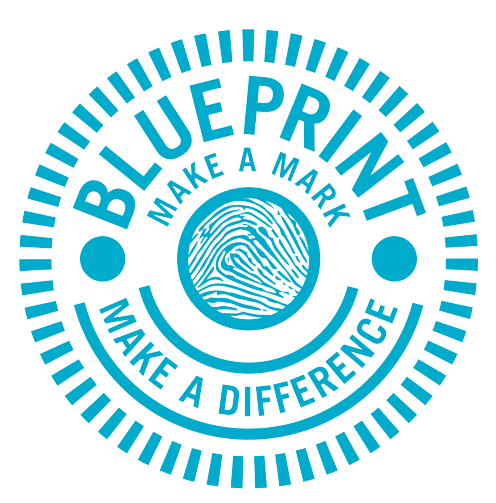
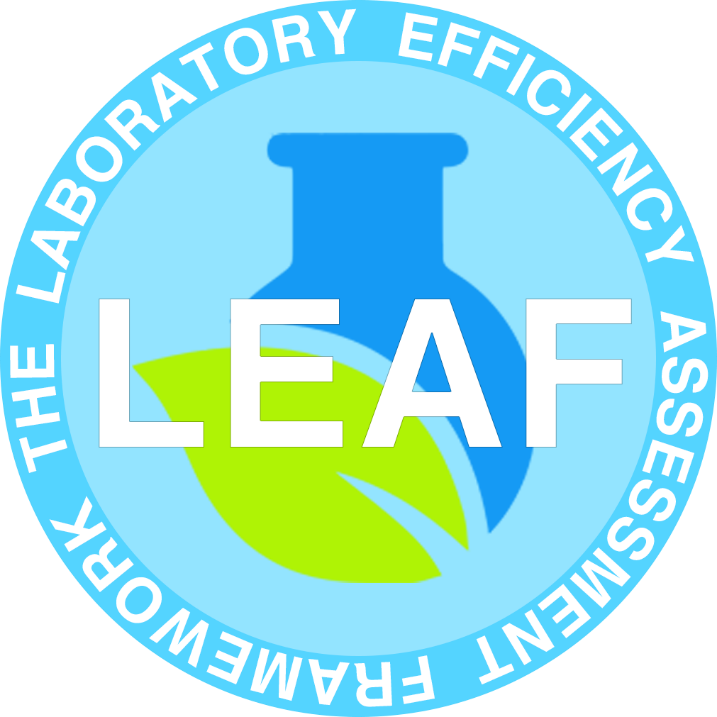
Student Sustainability Internships
Within the Sustainability Service, our annual internship opportunities allow students to gain experience in sustainability during their time at Leeds. This year, two Sustainability Interns supported across the Service’s communications and engagement approach, scope 3 emissions calculations, and Blueprint and plastics programmes. One of the interns also led a workshop at the Fair Trade International Symposium (FTIS 2023).
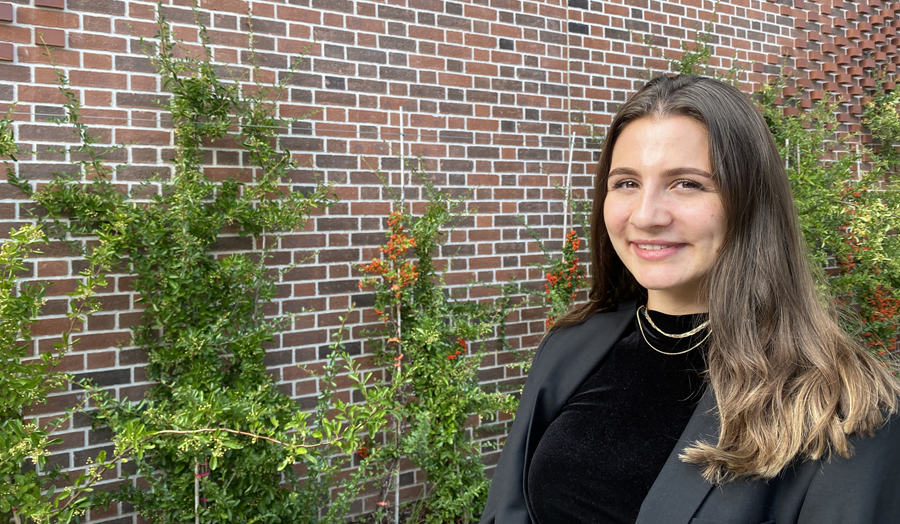
Lucy Cligg, Sustainability Service Intern
Lucy Cligg, Sustainability Service Intern
During my internship as Sustainability Communications and Engagements Assistant, I gained invaluable experience translating key environmental concepts into strategic and engaging communications campaigns.
The multi-disciplinary nature of the Sustainability Service projects meant my experience covered the full breadth of sustainability, providing me with a fantastic basis of knowledge to draw on once I graduate.
I enjoyed collaborating with the wider University on events and communications linked to the Travel Survey, Moving Out campaign and Sustainable Curriculum programme, whilst being fully supported by the team.
This internship significantly boosted my skills and confidence and has put me in an excellent position to start my graduate career.
Student Sustainability Architects
Our Student Sustainability Architect programme provides paid part time opportunities for students to lead sustainability projects on campus.
For the first time, architects were appointed to deliver mini projects supporting the University’s Climate Plan ambitions. These included working on the Student Sustainability Research Conference, developing Education for Sustainable Curriculum case studies and a resource bank supporting the University’s engagement in the Laboratory Efficiency Assessment Framework (LEAF).
Each year the University supports Fairtrade Fortnight, with one of our Student Sustainability Architects having led the organisation of our 2023 campaign. Cross-institution collaboration meant there was a myriad of ways to get involved, particularly focusing on student engagement with Fairtrade.
Student architects also delivered student engagement events, biodiversity projects and food growing sessions in the Sustainable Garden.
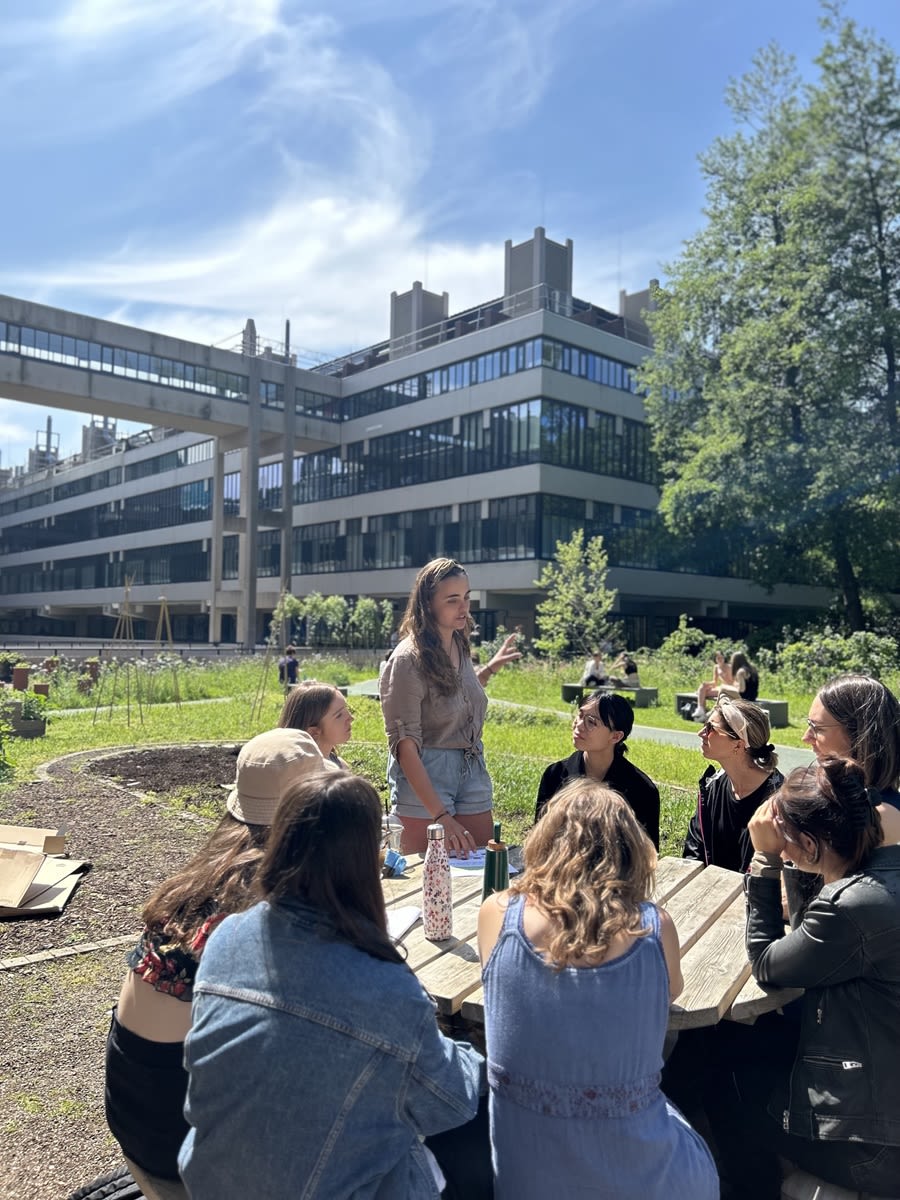
Sustainable Curriculum
The Sustainable Curriculum programme commits to providing our students with the knowledge and skills they need to have a positive impact in the world and to contribute solutions in our local community, and globally, in an equitable and just way.
The Leeds Institute for Teaching Excellence funded 'Redefining sustainability, climate change and equality in the curriculum' research fellowship was initiated, encompassing a literature review, interviews with staff across the University and the development of case studies. Knowledge gathered through this will be used to inform our approach moving forwards.
In May 2023, a community of practice group – Leeds University Network for Sustainability in Higher Education (LUNSHE) - was launched as a platform for peer learning, debate and sharing models for embedding sustainability into curricular and co-curricular learning.
Some further highlights from this year include:
- Our level one Sustainable Futures discovery elective module has been refreshed and is widely available to students.
- A new MSc Climate Futures has been developed with the first cohort starting in September 2023.
- A series of ‘how might we guides’ have been made available to staff to support professional development and understanding of education for Sustainable Development.
- The Sustainability Service continued to support the curriculum through guest lectures for modules such as Urban Ecology Field Course (BLGY2265) and Managing Biodiversity (SOEE2690).
The University’s leadership in Education for Sustainable Development has been further evidenced through sector and regional events and fora, including:
- Hosting the Fair Trade International Symposium (FTIS 2023), this included workshops on Education for Sustainable Development, Engaging with Young People, and Decolonisation.
- Convening the EAUC Living Labs Community of Practice.
- Active participation at conferences such as the Advance HE Learning & Teaching conference on the Sustainable Curriculum principle.
Student Sustainability Research Conference
Our dynamic Student Sustainability Research Conference was shortlisted for an EAUC Green Gown Award in recognition of the partnership working across the 12 Yorkshire University members, the extended student community this created, the benefits of providing a space for student researchers to share and explore links across their projects, Student Sustainability Architect support in shaping the event, and its delivery as a carbon neutral conference.
We received 82 applications from eleven universities, contributions included 60 academic posters and 46 student presenters.
There was an enormous variety of research on display, ranging from the impact of global trade on British beekeepers, to the attitudes to plastic on University campuses, to the effectiveness of gamification of environmental education, to the barriers and opportunities between sustainability and disabilities.
The day was attended by more than 300 delegates from across the regional universities.
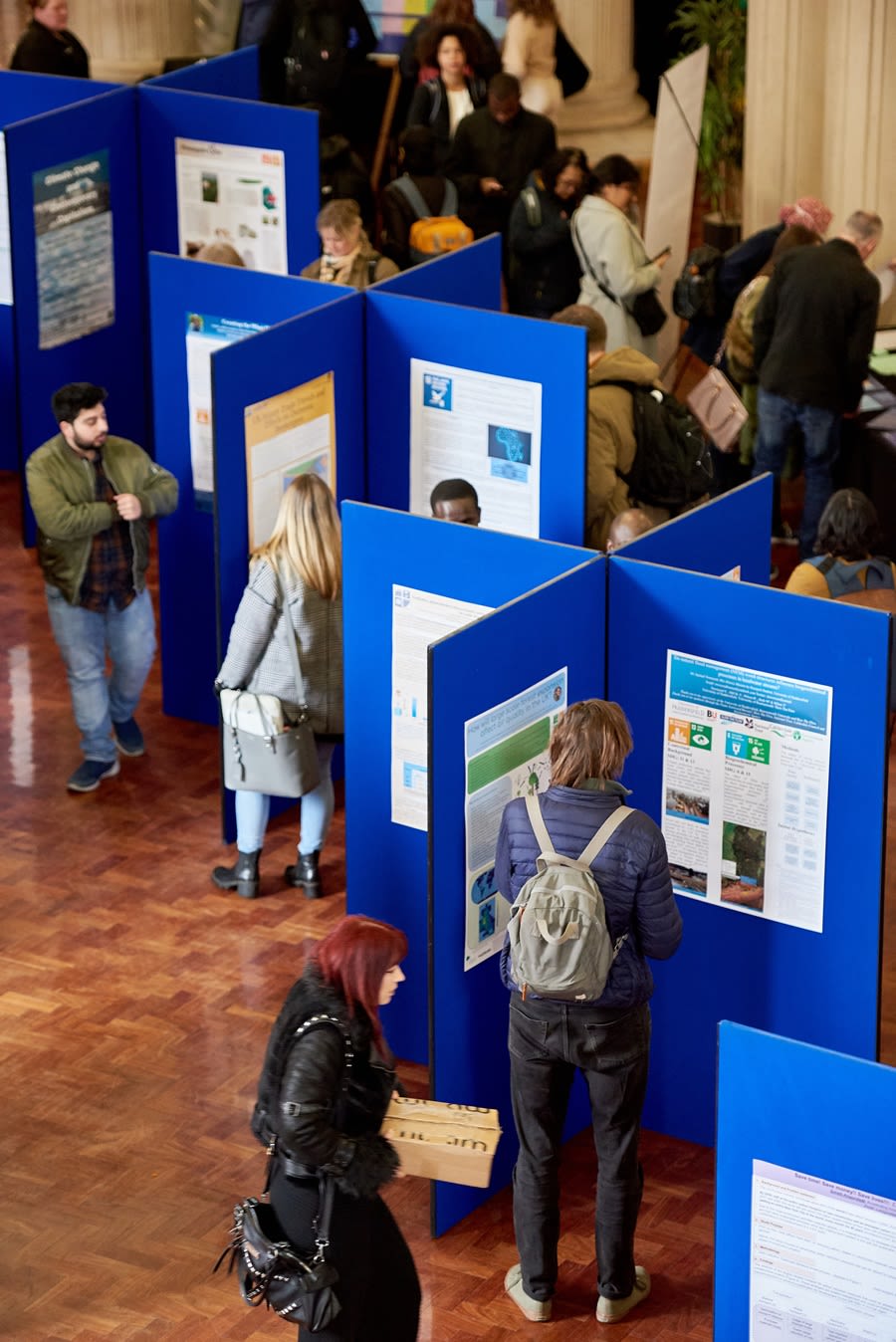
Living Labs
The University of Leeds Living Lab programme tackles real-world sustainability challenges through research and action. The approach is designed to enhance the University's commitment to embed sustainability through knowledge, engagement, collaboration, and innovation.
By bringing together students, staff, and city partners, Leeds Living Labs serves as a testbed for sustainable solutions, enhances the curriculum, and addresses local and global challenges at a range of scales through several different delivery models. Living Lab projects this year included the Platinum Jubilee Challenge winning mini-meadows project, led by Seb Stroud, a University PhD student, as well as Gair Wood.
Case study: Digital Art Installation
Digital Media student, Gabi Kiryluk, completed her final year research project utilising digital media to explore how interacting with the artwork provides more visceral experiences of climate science.
The digital art installation was available during Climate Week, acting as a Living Lab, prompting people to explore their individual response to climate science via an interactive experience and helping to inform the University on effective engagement in climate science.
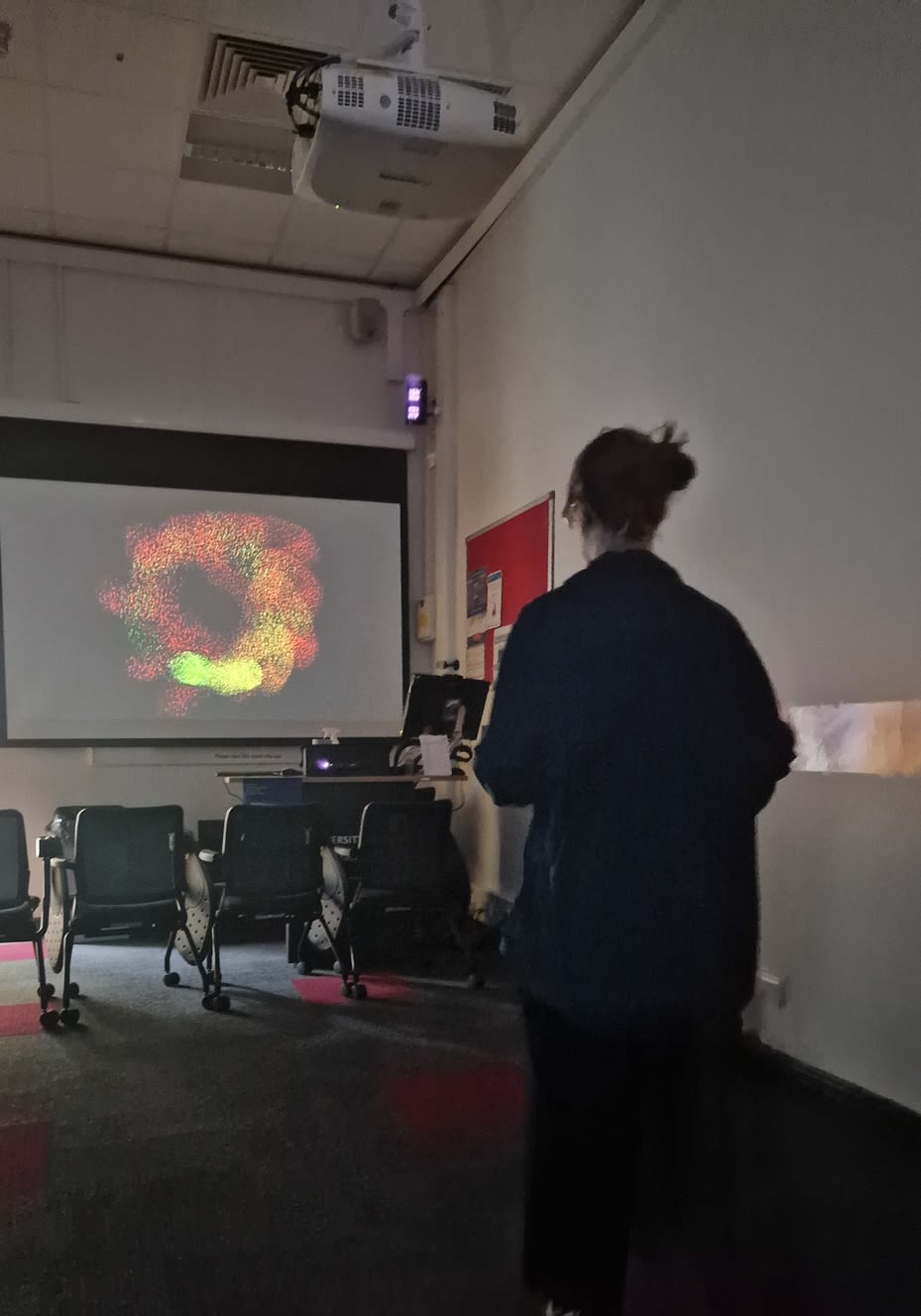
Environment
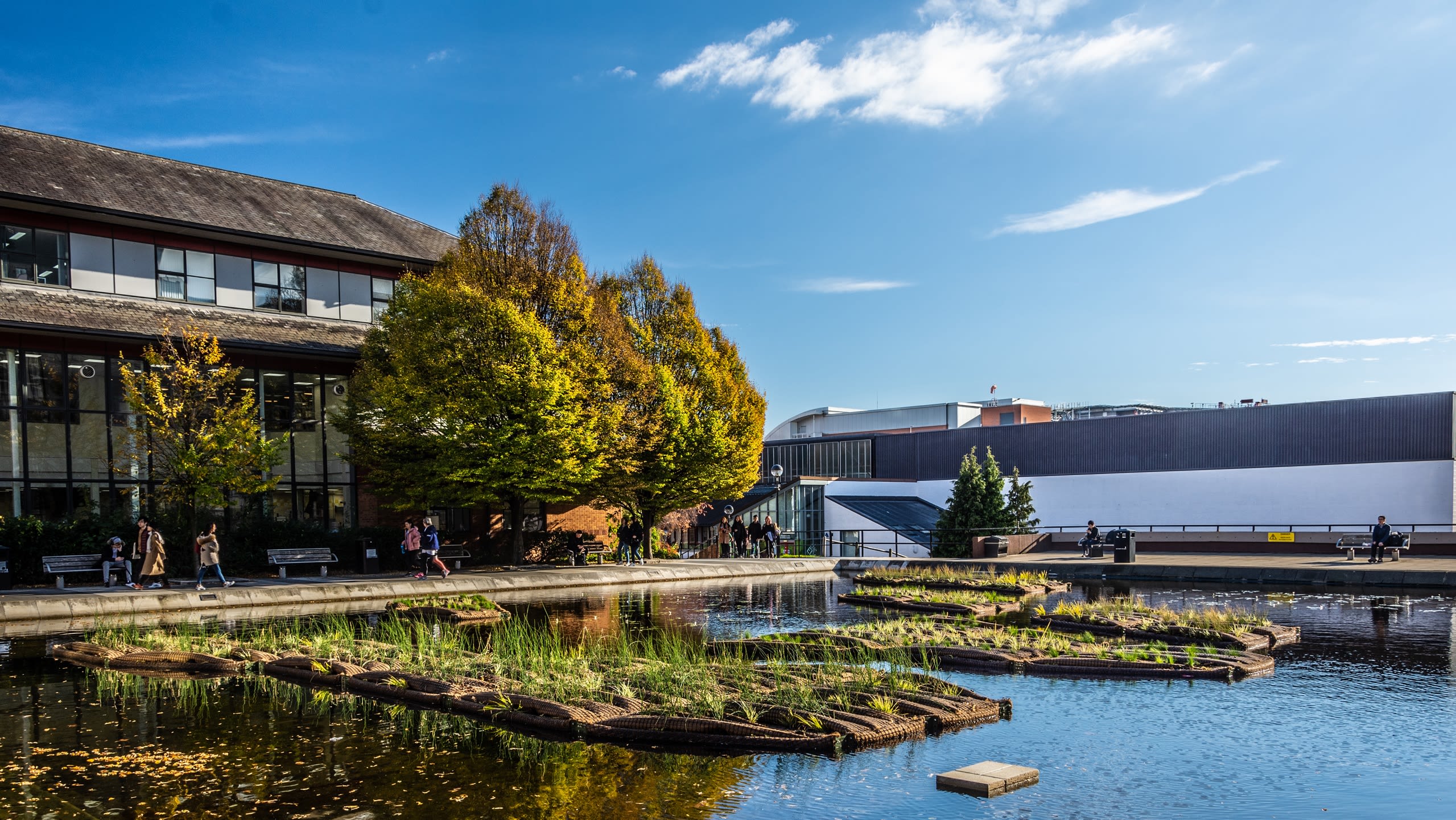
At Leeds we take our responsibility for the environment seriously and the Sustainability Service plays a key role in how we do this in a collaborative way, both internally with our University community and externally through partnership and engagement.
We ensure compliance with legislation and regulation whilst driving continual improvement across resource efficiency, sustainable procurement and construction practice. We provide strategic leadership for the University’s ambitious Net Zero commitment and play a principal role in driving sustainable travel.
Figures and Headlines
- EMS ISO 14001:2015 standard maintained
- 145 pieces of environmental legislation reviewed
- The University signed the Yorkshire & Humber Climate Action Pledge
- Gold Hedgehog Friendly Campus achieved
- 2 biodiversity site surveys completed (Campus and Farm)
- 65,000 trees planted at Gair Wood, plus 10 at residences and 10 on campus
- Around 170 metres of hedgerow planted (50 metres for campus, 120 metres for residences)
- 6 Wild Work Days with Yorkshire Wildlife Trust, producing 92 volunteer days of work around Leeds and the Aire Valley catchment
- 81 iNaturalist observations identifying 43 species
- 1993 Bike Hub visits
- 713 bikes hired through the Bike Hub (including renewals)
- 2272 bike spaces
- 130 staff used the Cycle to Work scheme
- 49% of waste recycled
2022-23 Emissions Data
All Greenhouse Gas (GHG) emissions are represented as carbon dioxide equivalent (tonnes) in the following lists.
Scope 1 emissions (direct)
|
Category |
Emission source |
GHG emission: Carbon dioxide equivalent (tonnes) 2021/22 |
GHG emission: Carbon dioxide equivalent (tonnes) 2022/23 |
% Change |
|---|---|---|---|---|
|
Direct |
Fuel combustion |
35,000 |
36,603.65 |
4.58% |
|
Direct |
University vehicle fleet |
67 |
148 |
120.9% |
|
Direct |
Agriculture |
1,429 |
1,837 |
28.55% |
|
Direct |
Fugitive (unintentional) |
174 |
268 |
54.02% |
Scope 2 emissions (indirect)
|
Category |
Emission source |
GHG emission: Carbon dioxide equivalent (tonnes) 2021/22 |
GHG emission: Carbon dioxide equivalent (tonnes) 2022/23 |
% Change |
|---|---|---|---|---|
|
Indirect |
Purchased electricity |
7,907 |
5,779.97 |
-26.9% |
|
Indirect |
Purchased heat |
644 |
489.72 |
-23.96% |
Scope 3 emissions (indirect)
|
Category |
Emission source |
GHG emission: Carbon dioxide equivalent (tonnes) 2021/22 |
GHG emission: Carbon dioxide equivalent (tonnes) 2022/23 |
% Change |
|---|---|---|---|---|
|
Indirect |
Category 1 Purchased Goods and Services |
120,362 |
108,663.17 |
-9.72% |
|
Indirect |
Category 2 Capital Goods GHG emissions |
2,190.7 |
1,828.11 |
-16.55% |
|
Indirect |
Category 5 Waste Generated in Operations |
171 |
254.98 |
49.29% |
|
Indirect |
Category 6 Business Travel |
3,277.51 |
9,634.96 |
193.97% |
|
Indirect |
Category 7 Employee and Student Commuting |
5,554 |
5,569.60 |
0.27% |
|
Indirect |
Category 13 Downstream Leased Assets |
Data not available, see note that follows. |
1,405.66 |
Data not available, see note that follows. |
Note: Prior to 2022/23, emissions from Downstream Leased Assets (Category 13) were included within our Scope 1 and 2 emissions. Starting from 2022/23, these emissions are now reported separately under Scope 3 following the adoption of the GHG Protocol framework.
Total emissions
|
Category |
Emission source |
GHG emission: Carbon dioxide equivalent (tonnes) 2021/22 |
GHG emission: Carbon dioxide equivalent (tonnes) 2022/23 |
% Change |
|---|---|---|---|---|
|
Direct and indirect |
Total emissions |
176,777 |
172,483.00 |
-2.43% |
Progress towards Net Zero
Delivering Net Zero is one of the seven principles of the University’s Climate Plan, and includes the target of reaching net zero emissions by 2030.
Significant work was undertaken during 2022-23 to mobilise the delivery of the Pathway to Net Zer0 (PDF, 20MB). As well as putting in place the appropriate governance and working groups to deliver the net zero programme, this included:
- Completing feasibility studies across 21 buildings on campus to identify the most effective building and energy infrastructure work to deliver net zero by 2030
- Installing low energy lighting across University residences
- Completing a Climate Change Risk Assessment and Resilience Review to assess the potential impact of climate change on the University campus.
- Commencing a geothermal energy study to explore the viability of subsurface energy to contribute towards heating our estate
- Planting more than 60,000 trees at Gair Wood, with benefits for research, teaching, biodiversity and carbon.
Further information on progress towards net zero emissions can be found on the Climate Plan reporting page and in the Climate Plan Annual Progress Review.
Environmental Management
Our Environmental Management System (EMS) is certified to the internationally recognised standard ISO 14001:2015, and audited annually. This year’s 3-day audit found no non-conformities, and only 3 observations.
Our EMS exists to ensure we meet all relevant environmental legislation, protect the environment and continually improve to enhance our environmental performance, in line with our Environmental Policy. As part of this we monitored 145 pieces of legislation and checked compliance with 50 pieces containing obligations for the University.
In 2022-23 we redeveloped our EMS introductory training module, available to all staff and students, ready for relaunch in 2023.
Sustainable Travel
Our Sustainable Travel commitments and approach are outlined in our Climate Plan. In 2022-23, we continued to track emissions from commuting and business travel whilst exploring opportunities and developing plans for future interventions to reduce travel emissions. This included publishing Interim Business Travel Guidance and laying the foundations for several projects that will take place in 2023-24, such as upgrading our EV infrastructure on campus.
Work to support active commuting and cycling has also been ongoing. The Bike Hub saw an increase in the number of bikes hired, and ran regular bike maintenance sessions throughout the year.
Sustainable Procurement
Our Sustainable Procurement Standard was updated in December 2022. We also began developing a Sustainable Procurement Toolkit.
Improving measurement of supply chain emissions is a priority area. Our work in 2022-23 focused on exploring options to address this, including selecting a net zero carbon supplier tool, which we will pilot from 2024. Further information can be found on the Climate Plan reporting page.
Fairtrade
Having been a Fairtrade University since 2005, we have continued to support and promote Fairtrade in 2022-23 as set out in our Fairtrade Policy (PDF, 200KB). Our two-star Fairtrade University status recognises the broad range of activities undertaken within the University, embedding ethical and sustainable practices through our curriculum, procurement, research and campaigns.
In March 2023, guided by our cross-University Fairtrade Steering Group, we hosted a series of events and utilised online communications to support the Fairtrade Fortnight 2023 campaign, sharing the message that making the small switch to Fairtrade supports producers in protecting the future of some of our most-loved food and the planet. To inform our work on Fairtrade, we conducted a student survey in April 2023 to identify the current perceptions, opinions, and knowledge of students when it comes to Fairtrade.
The University of Leeds had the honour of hosting the Fair Trade International Symposium in June 2023, providing the chance for various colleagues and students from the University to engage with leading global scholars, practitioners and policy makers working on fair trade globally.
Biodiversity
Our Biodiversity Standard and action plan provides a framework for our approach in managing biodiversity. In 2022-23 our Biodiversity programme of work continued to focus on embedding biodiversity into all our campus works, using our campus as a living lab, and creating welcoming spaces that supports improved wellbeing and health.
A comprehensive UKHab habitat survey was commissioned and completed for the city campus and the University farm. In the next year we will survey the rest of the University estate allowing us to baseline and determine our targets for the next five and ten years.
The Residential Services team continue to drive sustainability through their work. Biodiversity highlights include the North Hill Well Wood project where three staff and student volunteer events were held producing 37 volunteer days of work. More information on their great progress can be found in the Residential Service Annual Sustainability Report.
Peregrine falcons have been nesting intermittently on the Parkinson Tower since 2018. In March 2023, four Peregrine eggs were laid but unfortunately none of the eggs hatched. We suspect this was due to a late frost.
As part of our ongoing efforts to protect urban biodiversity on campus, we have reviewed all the bird netting on our buildings and established a new maintenance programme where netting is a last resort. Additionally, we have tested a new bird-proofing system as an alternative to netting, developed by Symterra and called "Flock Off". This system eliminates the need for netting by creating an invisible electromagnetic field around the roof that harmlessly deters birds from landing. In line with our goal to be leaders in this field, we are the first UK university to trial this innovative approach and look forward to sharing our journey with others.
Case study: Gair Wood
The ‘Gair Wood’ site was officially dedicated by former University Secretary Roger Gair and the Vice Chancellor Simone Buitendijk. Around 65,000 trees were planted on the site by contractors and volunteer groups from across the city.
Acting as a Living Lab, the creation of Gair Wood allows the University to explore the real-time impacts of tree planting as a nature-based solution to climate change.
This activity was co-ordinated in collaboration by Sustainability Services, Estates Services and the United Bank of Carbon.
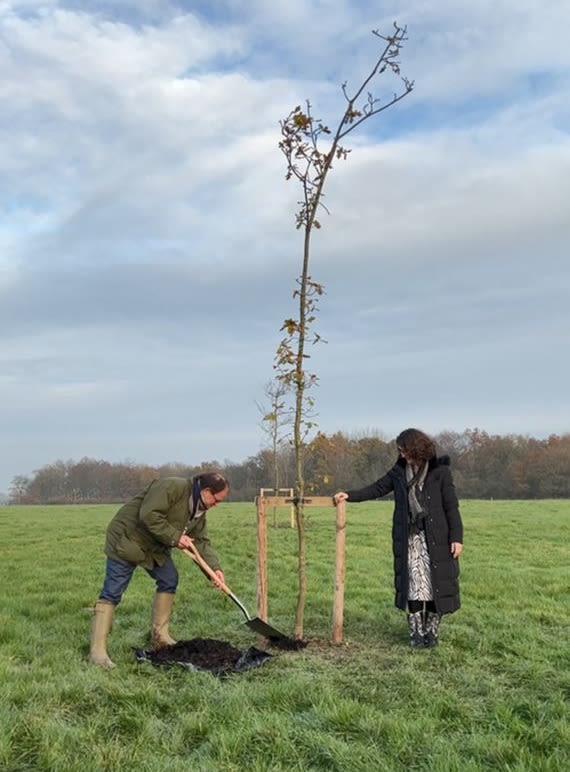
Case study: Campus species monitoring programme
We have built on our long-standing campus species monitoring programme with the addition of a monthly staff volunteer-led campus ‘wildlife wander’.
These activities contribute to the early stages of a species recognition programme skills ramp that seeks to not only capture biodiversity data, but also help staff and students to reconnect with green spaces and improve wellbeing and health.
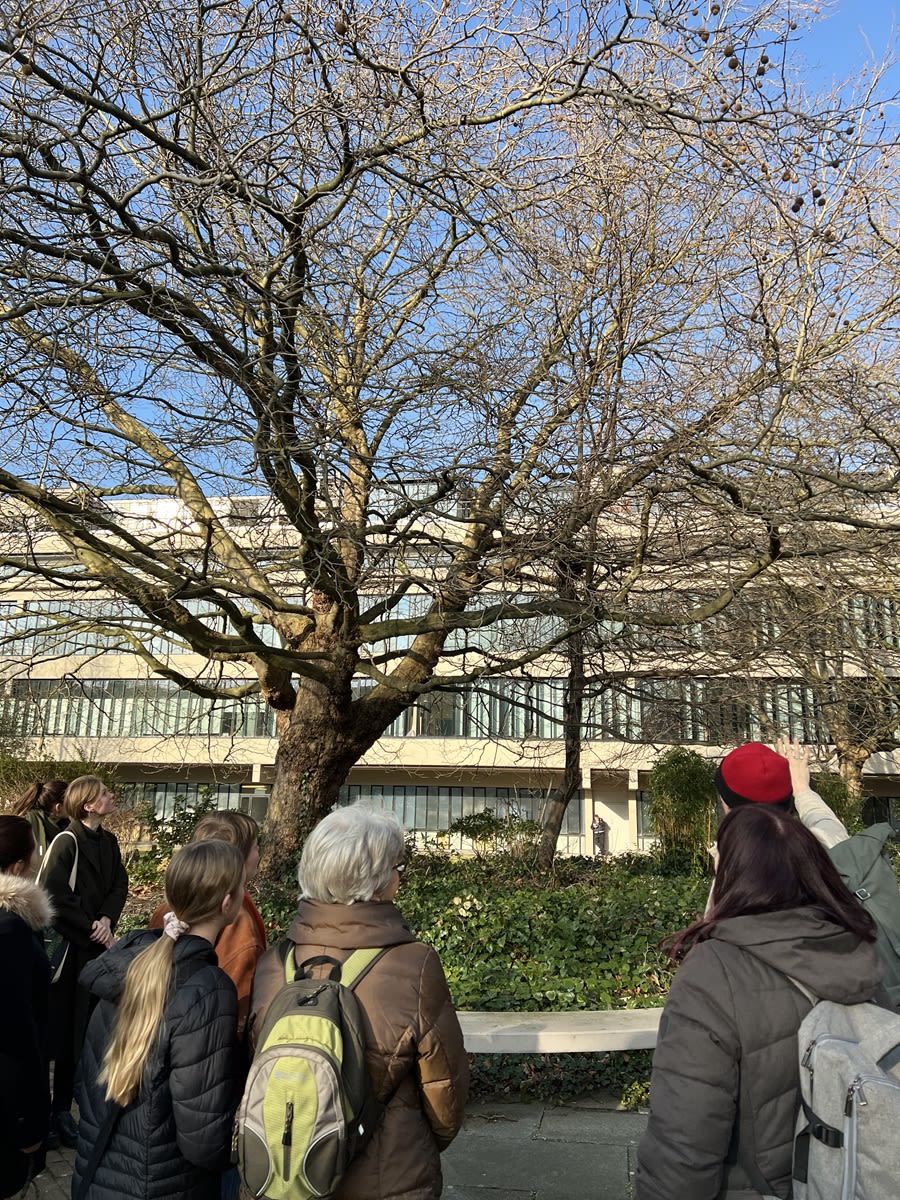
Social impact
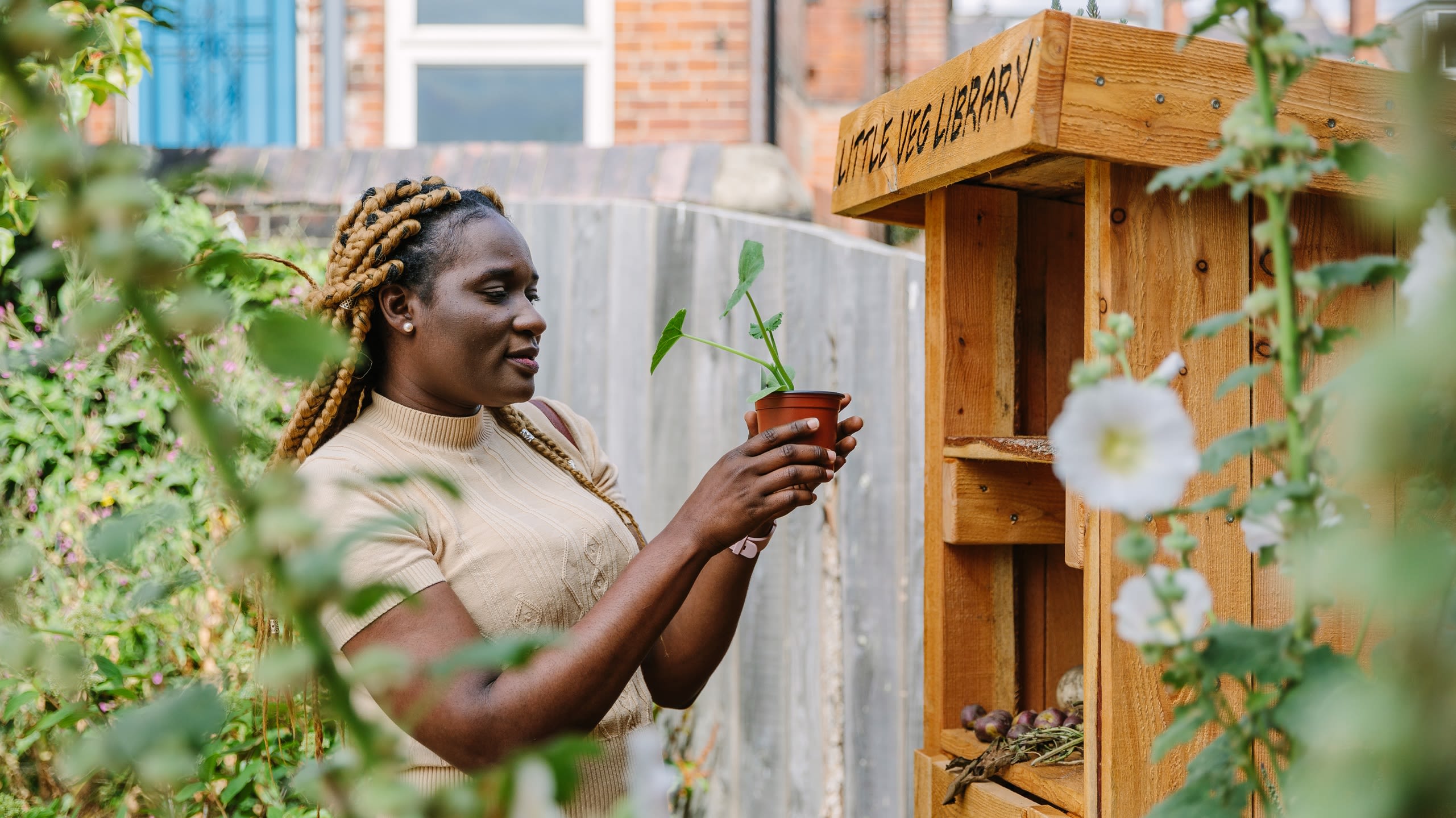
The Sustainability Service aims to engage and work directly with our students, staff and our local communities to build and enhance the University’s social impact.
Our focus is on facilitating projects and partnerships which contribute to a more sustainable and Net Zero City through community engaged research, student education and civic engagement activities.
The cornerstone of this work is addressing the social and environmental sustainability impact of high concentrations of students in neighbouring communities and working with them to ensure that our communities are more resilient and cohesive places to live, work and study for all residents.
Figures and Headlines
- 192 student households provided with citizenship training, guidance and support
- 41 tonnes of 'valuable goods' intercepted and donated to local people in need
- 40% reduction in calls to the noise service and a 70% improvement in noise service response times
- Educational Engagement worked with approximately 718 schools nationwide
- 187 community, voluntary and third sector organisations actively engaged through the Volunteering Hub
- 323 volunteering opportunities advertised through the Volunteering hub
- 5958 students engaged at the Volunteering hub
- 3213 volunteering applications made by 1533 students
- 105 students involved with placements with local schools through Students into School modules.
- £24,168 allocated to 9 student projects through the Student Ideas Fund
Student Citizenship
The University has a strategic commitment to work with our students and the local community to support student integration and enhance community cohesion. We developed our student citizenship programme with stakeholder input to educate and guide our students on independent living, create positive benefits for the community, and minimize negative effects.
Our Welcome to Leeds initiative at the start of the year saw Community Ambassadors door knocking in areas popular with students, sharing useful information and guidance on living responsibly and sustainably in private accommodation.
Residential Services, with support from the Sustainability Service, ran the Halls to Homes programme of training for students moving out of University residences into private accommodation to prepare them for the increased independence and responsibilities of running a household.
Working in collaboration with Leeds City Council, Leeds Beckett and Unipol, this year’s Moving Out campaign targeted reduction in waste, improvement in waste collection speed and cleanliness of local streets at student tenancy changeover. The University’s direct contribution has been the funding and delivery of student engagement and collections of students unwanted items for the benefit of communities. These items are passed on to charities and through our community freeshops.
Case study: Noise Service
Made possible through significant funding from the University and Leeds Beckett, a dedicated noise service was introduced in 2022 to more effectively address noise nuisance by students in the community.
The service provides enhanced call handling capacity and overnight response officers working from 5pm to 4am, seven days a week. It also provides a Community Coordinator to gather intelligence and deliver engagement activities with students and the wider community.
In 2022-23 the noise service rapidly improved the experience of community members. There was a 70% improvement in noise service response times (from over 44 minutes to 16 minutes). In addition, there has been a significant improvement in behaviour, with 40% fewer calls to the noise service reported.
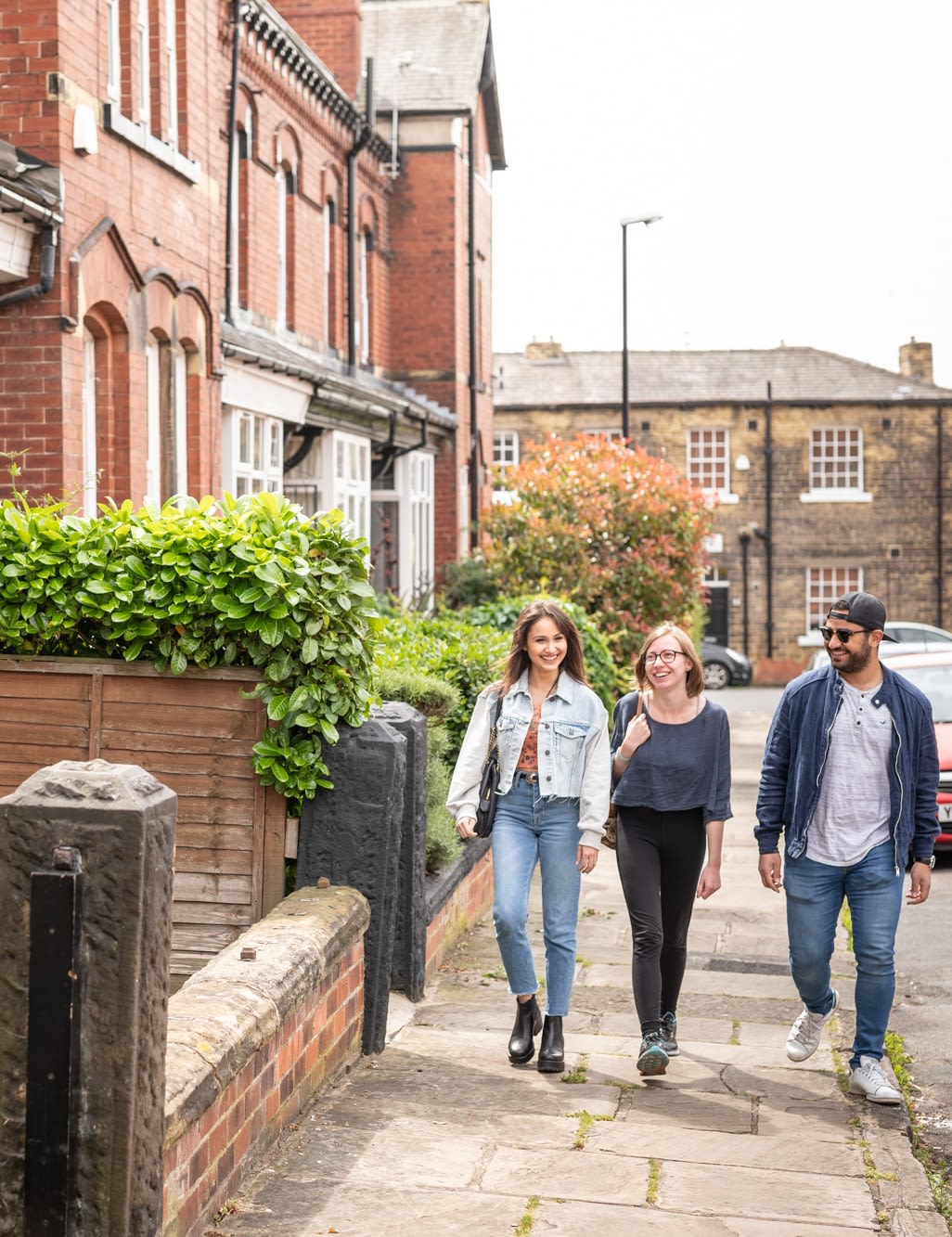
Community projects
Community projects provide opportunities for students to enhance their skills through volunteering whilst positively contributing to the communities where they live, work and study . Collaborating with diverse community partners ensures our work meets the needs of the wider Leeds community, addressing their sustainability challenges and opportunities.
Some highlights from this year include:
- Working with Brudenell Primary School to clear and redesign an area of their outdoor space into a forest garden designed collaboratively with students at the school.
- A Community Mural competition, enabling winning artists to create 2 community murals in areas across the city.
- Running monthly litter picks on Woodhouse Moor and the surrounding streets, aimed at improving the environment for both people and wildlife, contributing to the local community and meeting new like-minded people.
Positive Impact Partners
Positive Impact Partners (PIP) is the University of Leeds gateway to connect third sector and civic partners with our staff and students, to network, share knowledge and experiences, and form new partnerships in support of a sustainable and net zero city.
PIP brings together students, academic and professional staff and community partners and is rooted in the knowledge that there is mutual benefit to be gained from the partnerships that are formed.
The partnerships that are created through PIP aim to support a net zero city through focusing on land use, circular economy, energy justice, climate justice and other environmental issues. It also includes projects that focus on climate adaptation, and knowledge sharing workshops that disseminate information and best practice regarding university-community partnership.
In 2022-23 we focused on reviewing our programme design and aligning it to the Net Zero City principle of the Climate Plan, fostering relationships with community organisations, and increasing our internal capacity to support this work. The PIP Programme now has a dedicated team in place, funded through the Net Zero City principle of the Climate Plan. With this resource, we aim to enhance community engagement, create partnerships, foster civic collaboration, provide student opportunities, and integrate programmes across the university.